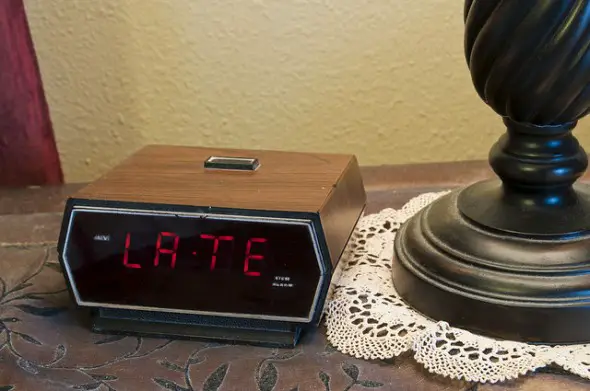Pre-what?
That’s what first came to mind when I read the word “precrastinator”, but my brain quickly took it in, knowing full well how procrastinating is a big issue for many freelance writers. There have been quite a lot of studies focusing on procrastination – why it happens, what it does to productivity, and even how it affects the health of individuals because of stress.
Blog posts and online how-tos dealing with procrastination can easily be found, but it is not common to come across something dealing with the opposite: being a precrastinator.
What exactly is a precrastinator?
A precrastinator is the opposite of a procrastinator, in that he or she takes on more work and completing tasks sooner than the deadline.
Forget the popular quote from Douglas Adams: I love deadlines. I like the whooshing sound they make as they fly by!
What to do if you miss a deadline
So which are you?
Given the characteristics of a procrastinator and a precrastinator, which one do you think you are? I’d say that I am sometimes a procrastinator, and other times, I am a precrastinator. It’s just the way things are; not everything is black and white. There are good days, and there are bad days.
Being a precrastinator is good, right?
If you are a precrastinator, you should have a smug look on your face right now, shouldn’t you? After all, completing your work before the deadline is something to be proud about. It oozes professionalism and efficiency. It helps your bottom line.
But, is it a good thing, really?
Penn State’s David Rosenbaum, together with his colleagues Lanyun Gong and Cory Adam Potts, conducted a study on this particular topic. Here’s what they did:
They set up a series of experiments not unlike my morning ritual—simpler actually. In the study, volunteers were asked to walk down an alley, pick up a bucket along the way, and deposit it at the end. They had a choice of picking up a bucket that was close to them, and therefore had to be carried further, or a bucket that was a bit further away from the start and thus required less carrying. The buckets were of equal weight, and the volunteers were instructed to do whatever seemed easier.
As it turned out, what “seemed easier” was to pick up the load closest to them instead of the bucket that required less carrying, resulting in more work. This, the researchers labeled precrastination.
Counterintuively, the researchers say that precrastinators are not necessarily better off than procrastinators.
Precrastinating may feel better than procrastinating, as you avoid that nagging knowledge that you should be doing something else, but rushing to complete a task may result in decreased performance. “If you want to start and finish something as fast as possible–before you have the full instruction on how to complete the task–it could potentially be a problem,” says Potts.
Additionally, there may be benefits to being a procrastinator.
“Oftentimes, you’re able to remember things better or things occur to you that wouldn’t have occurred to you [in the moment], says Potts. “If you’re a procrastinator, you have that time to incubate, whereas if you’re a precrastinator you don’t.” Rushing to complete the task could mean you’re losing out on ideas that would have occurred to you later if you’d taken the time to mentally percolate on the task.
So there’s good news for procrastinators, although I do think that being a precrastinator is also beneficial depending on the context. It’s all in the context, don’t you think?
What are your thoughts on this? I’d love to read them in the comments below.



Leave a Reply